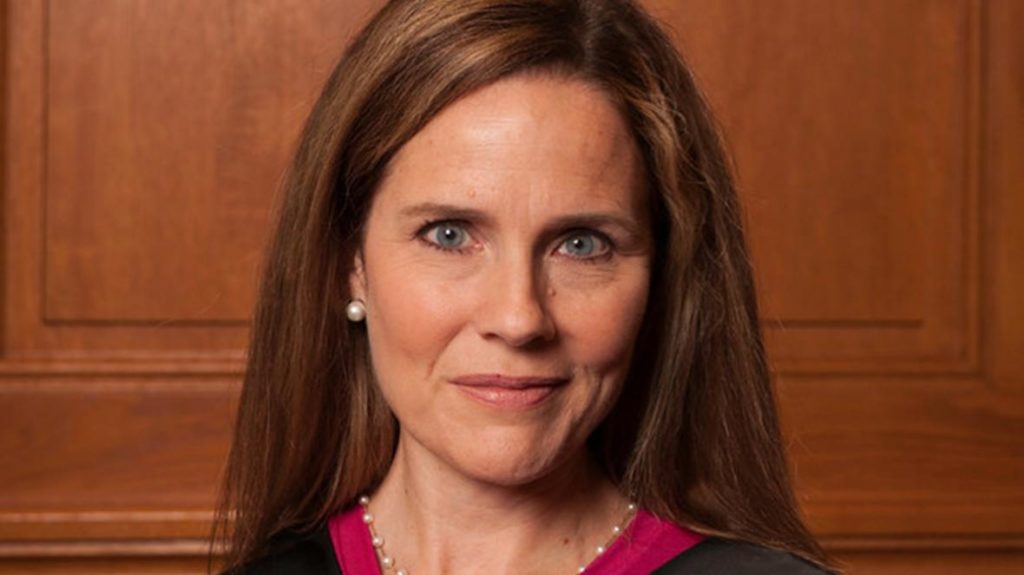ACB and the Maternal Civilizing Mission

Régine Jean-Charles just put out an excellent analysis of Barrett’s description of her children during her confirmation hearing.
Subjecting the young children of public figures to extra scrutiny can be problematic. In this case, however, Dr. Jean-Charles is simply calling attention both to the way that Barrett’s supporters have attempted to turn her adopted children into a political shield against any discussion of racial injustice and to the way those children are being treated in this process. You can read Barrett’s own words in the piece or watch the full remarks here.
These descriptions troubled me as a Black feminist, as a mother and as a woman of Haitian descent.
First, I noticed that these Black Haitian children were merely the sum of their trauma. They could not be removed from the context of devastation that plagues descriptions of Haiti in the popular U.S. imagination. As Gina Ulysse explains cogently in her book of the same name, “Haiti needs new narratives.”
Indeed, the adoption narrative peddles the myth of Haiti as nothing more than a place of lack from which children must be rescued.
Second, as a mother of four who was also raised in a family of four, I am painfully aware of how my children notice our descriptions of them. Although we work hard to let them know that “comparison is the thief of joy,” inevitably they see themselves in relation to what we say about their siblings.
I could not help but wonder how it must feel for Vivienne, J.P. and Benjamin to hear all of their siblings described for their intellectual attributes and academic accomplishments—whereas they were identified for their strength and resilience.
Third, and perhaps most troubling from my vantage point, the disparity between how she described the biological children in terms of their intelligence and talent—as opposed to the Black children, who were strong and “happy-go-lucky”—play in to more nefarious myths about Blackness.
In a world where the adultification of Black girls has been well-researched, Barrett’s description of her daughter’s masculinized strength was at best a perpetuation of the strong Black women myth, and at worst, a reiteration of the perception that Black girls be seen as adults, and not girls. The descriptions of the Black children in which only their physical and personality attributes were described played into racialized and gendered tropes that are cloaked in racist beliefs.
The daughter is strong and masculine.
The son is happy despite all he has been through.
…
Given the longstanding neo-imperial relationship between Haiti and the United States, how we talk about the Barretts’ adoption of their Haitian children merits critical reflection. As the Afro-French filmmaker Amandine Gay makes clear in her documentary about transracial and international adoption, it should not be taboo to talk about issues like politics, power and representation in relation to adoption.
…
How, if given the chance to speak would they describe themselves? What do they think about the fact that their mother is now positioned to be the next Supreme Court justice because of the same man who referred to their country of origin as a “shithole country”? Did they, like me, cringe when he described them in the Rose Garden on the same day of an event that led to several people contracting COVID-19? Do they know that their Black Lives Matter too?
White supremacy regularly joins forces with the savior complex side of the imperial civilizing mission–often at the level of the family. Numerous commentators have pointed to the common practices of adoption, sponsorship, or the actual fathering of non-white children by figures who were fully committed to ensuring white domination. This paternalist tutelage of the chosen few is offered as proof of the charitable benefits of racialized imperial rule and as justification for violence and oppression of those who do not willingly follow–even adore–their colonizers.
We now face the horrifying prospect of someone who has deeply internalized this “civilizing” logic being the deciding vote in Supreme Court rulings on the US’s criminal mistreatment of migrant children. It is all too easy to envision Barrett’s support for policies that allow for children to be “saved” by US officials and institutions even as their families and countries are discarded, deported, and denigrated.


